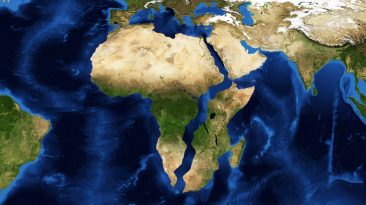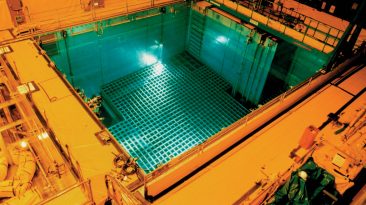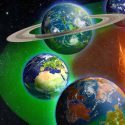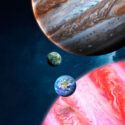What if all the stars disappeared tomorrow, together with all the planets, solar systems and galaxies? What would be left of the Universe if it suddenly collapsed?
What could make it restart its cosmic cycle all over again? And how exactly could the entire Universe break apart?
Some 50 million years from now, the Martian moon Phobos will slam into Mars and shatter to pieces. In 100 million years, Earth will likely get hit by an asteroid the size of the one that caused all the dinosaurs to go extinct.
In about 1.5 billion years, the Sun will become so luminous, that it will force the habitable zone to move outwards, leaving what’s left of Earth to get crispy.
Everything will eventually come to an end. Even our almost 14-billion-year old Universe. What would it be like to witness of the epic end of the cosmos?
Don’t get too comfy. The end of the Universe would mean the end of everything in it. Two trillion galaxies that we can observe from Earth, filled with a tremendous amount of everything from enormous gas giants to weird shaped asteroids. Everything would be gone, including you and whoever else is out there.
But your last moments could be very different depending on how the Universe shut down.
1.The Big Chill.
The Universe is expanding. Galaxies are moving away from each other at an ever-increasing rate, despite the attempts of gravity to pull them back together.
That’s because a theoretical force called dark energy is opposing the force of gravity. If one day, this dark energy pulled a little too hard, the pieces of raw material needed for star formation would be too far away from each other. All the existing stars would eventually run out of fuel, and there would be no new ones to replace them.
It would get very dark and very cold. Once the temperature reached absolute zero, nothing would be able to move, not a single atom. The Universe would become the most boring, static place, and would probably remain an endless void forever. I bet you were hoping for a more spectacular ending to this story.
2. The Big Rip
If the dark energy became so intense that it was able to nullify the force of gravity altogether, it would rip the Universe apart.
It would start with the galaxies, tearing them down one by one. Black holes would be next to disintegrate, followed by stars, planets, asteroids… As the expansion of the Universe ramped up, every form of matter would collapse on itself and decay into radiation. That, of course, includes you.
The Universe would end up full of single particles. Would it ever come together after its death?
3. The Big Crunch
If the force of gravity fought back hard enough to overthrow the dark energy, the Universe would stop expanding. It would shrink back instead.
Planets would collide with other planets. The stars would slam into each other. Galaxies would merge together.
In that cosmic chaos, Earth wouldn’t be able to dodge all the space matter for too long. The Universe would compress into a very dense singularity, just the way it was before the Big Bang began spewing out galaxies.
From that singularity, it could make a fresh cosmic start: with new planets, new stars, new life forms. One way or another, the Universe and everything in it will end. But it won’t happen in just one day.
Subscribe to What-If on YouTube or follow the show on Facebook Watch.
Sources
- “Ultimate Fate Of The Universe”. 2019. en.wikipedia.org. Accessed January 21 2019.
- “WMAP- Fate Of The Universe”. 2019. map.gsfc.nasa.gov. Accessed January 21 2019.
- “Big Crunch – Universe Today”. Villanueva, John Carl, 2009. Universe Today. Accessed January 21 2019.
- “Hubblesite – Dark Energy – Fate Of The Universe”. 2019. hubblesite.org. Accessed January 21 2019.
- “What Is The Big Rip? – Universe Today”. Cain, Fraser, 2013. Universe Today. Accessed January 21 2019.
- “Big Freeze – Universe Today”. Villanueva, John Carl, 2009. Universe Today. Accessed January 21 2019.



























